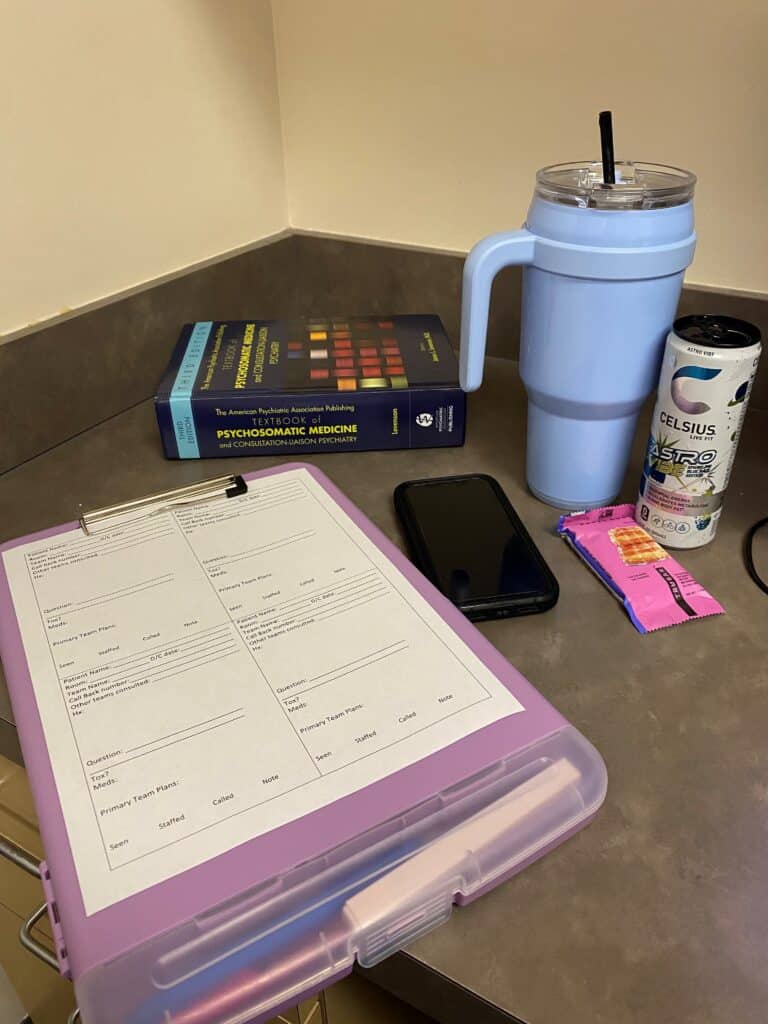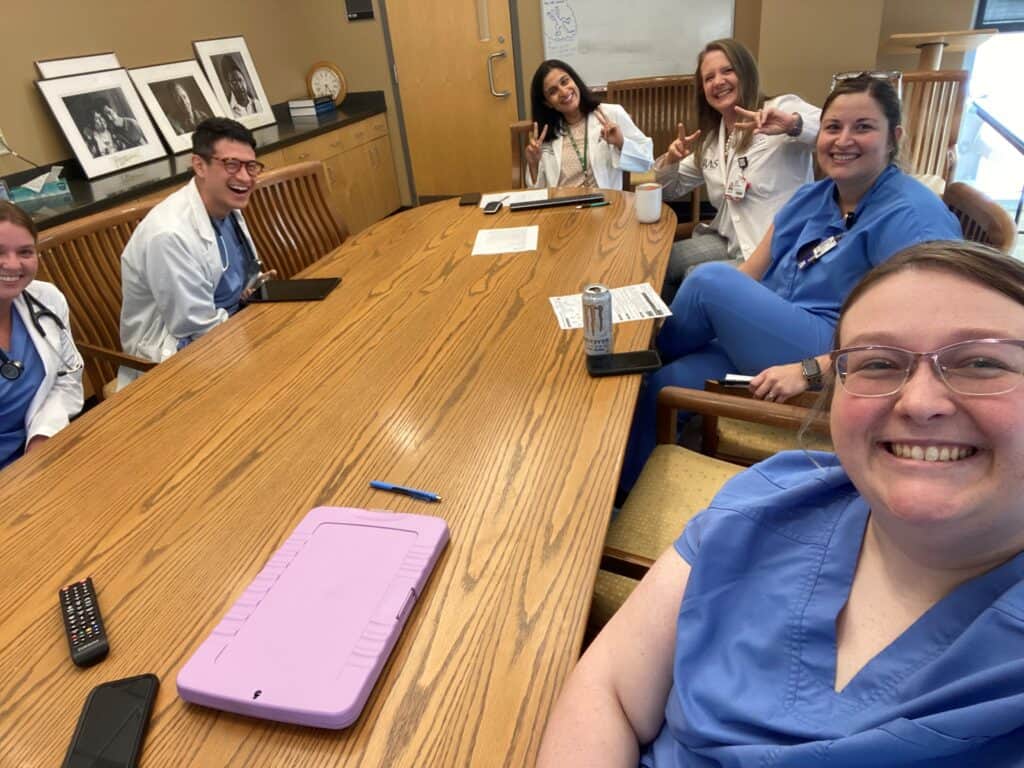A Day in the Life of a Second-Year Resident
PGY-2 year is the first year of your career where you get to practice psychiatry FULL TIME, and it is such a blast! At UAMS, we have our blocks split into the “easy” and “hard” semesters! The hard semester consists of UAMS consult-liaison, VA consult-liaison, an inpatient psych rotation at the VA and Night Float! The afternoons of easy semester are six months of longitudinal child clinic, child CL and talk therapy at the VA. In the mornings, you rotate on Geriatric psychiatry, interventional psychiatry, and have Elective time! I started on the hard semester, and my schedule is below.

I’m currently on UAMS consult-liaison, which can be a very busy rotation, but it is super fun and packed full of learning opportunities! (I may be a bit biased since I’ll likely do a fellowship in CL). I start my day off with some snuggles with my cats and debating the merits of making coffee at home vs. grabbing caffeine as a treat on my way to the hospital.

We have a dedicated CL work room on the fifth floor of PRI. I arrive there a bit before 7:00 to prepare for handoff from the Night Float resident. Once they provide handoff on overnight patients and pending consults, I grab the phone from them, which functions as our pager! I settle in with the essentials of the rotation (caffeine, water, snacks, and a clipboard to take down consults) and start triaging the list. This involves assigning patients to members of the team, including myself, medical students, PA students, our lovely CL PA, Amy Pintado, and a PGY-4 if we have one on elective with us! Our list can vary greatly, in number of patients, diagnoses, and acuity. We will typically have a few ER patients to see or follow up on their placement, consults we are following on the medical floors, and sometimes floor consults that were called or seen overnight.
As the rest of the team arrives, I make any changes to assignments we need and begin chart checking my patients. Once I feel I have done a thorough chart review on all my patients, I set off to see as many as I can before our 9 a.m. table rounds. This pre-rounding can include follow ups or new patient interviews. At 9:00, we sit down in a conference room at PRI with large projecting screens to table round with the attendings, students, and social workers. We discuss patients and possible interventions/needs, then the attendings (usually we have two covering each morning) split the list of what patients they will see. I will typically round on my patients with one attending, then meet with the other to finish rounding with them. We try to finish all follow-ups and overnight new consults before noon, when we’ll break for lunch. If we finish earlier, I will work on afternoon tasks earlier.

I typically eat lunch at my desk and spend some time on my phone or read (a fun book) as my break. I then make a list of teams to call, notes to write, orders, and tasks for my students (collateral, etc.). I start with calling teams to update them as quickly as possible, then orders, then notes. The attendings on this service and Amy (PA) are super great about asking how they can help or taking the pager phone for a bit if the resident has too many tasks. The attendings will also see patients on their own if things are too busy, which helps the CL resident and is less work to pass off to Call!!
Throughout the day, new consults will be coming in. They will typically start around 9:30/10 from medicine teams, unless they have an urgent consult. Though the ER may call at any time with a new patient! I chart check new consults following finishing the morning notes, and triage and assign patients again. We see as many as we can, staff, make our recommendations, and write notes until 4:30. At 4:30, the pager phone and any pending consults are passed onto short call! Some patients can wait to be seen the next day, but most are handed off. The CL attendings really want to make sure you can wrap up at 4:30, as they know you work hard and really value your time!
As PGY-2s, we do not have short call, so I head home at 4:30 every day! When I get home, I typically spend 15 mins decompressing or talking to my parents. I make some dinner, then read a book or work on my latest crochet project. Before bed, I try to read one article or textbook chapter, especially when we have a complicated case or realize I have some gaps in a presentation I’ve seen that day. This is important in the second year, as you are beginning to build your knowledge base at a rapidly increasing pace!
